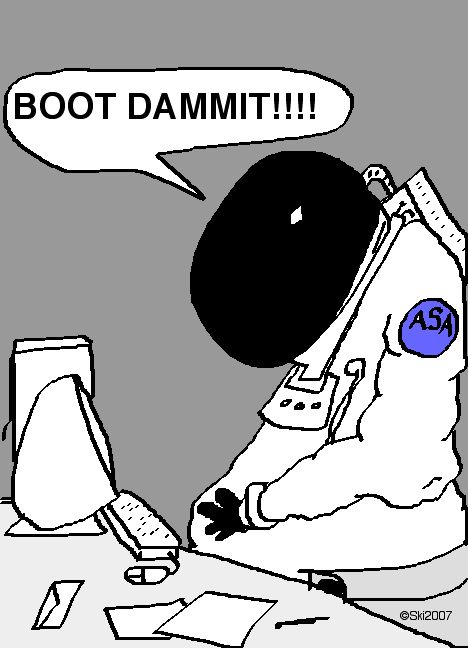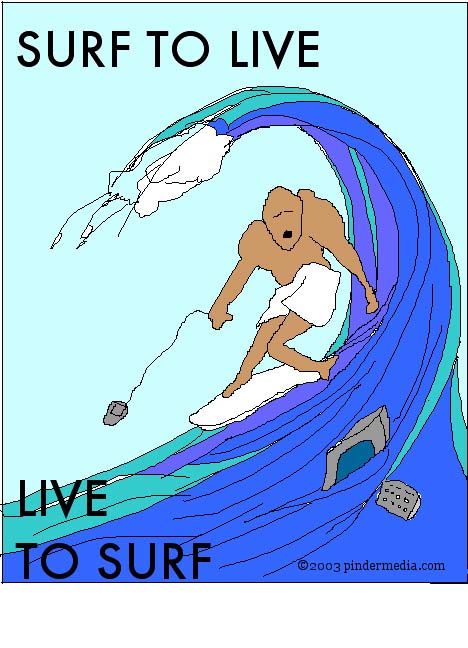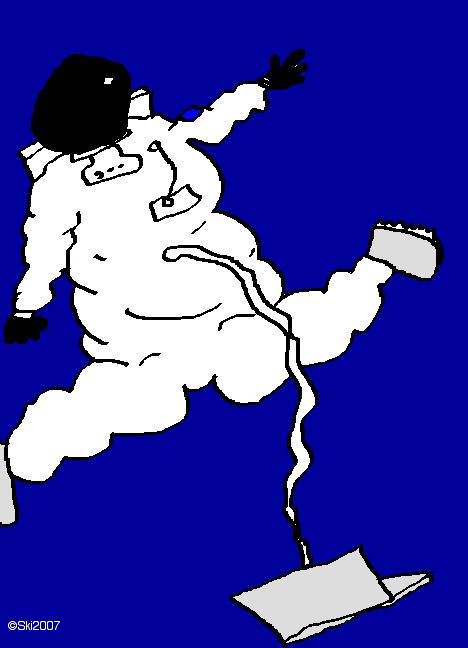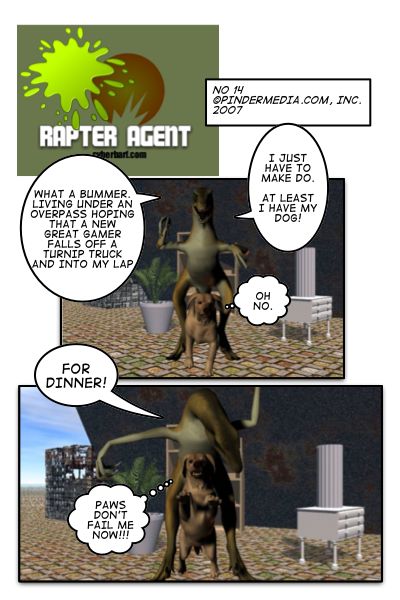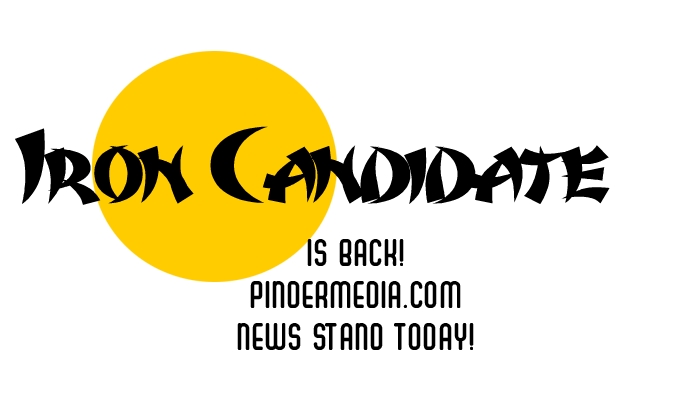CYNSATIONAL“We are now in the dead of Winter in America. Cabin fever will set in with our snowbound friends. You can flee the cold on line. Book a trip to the tropics, or surf the waves via the Web in streaming webcams from locals like Waikiki. Sweet.”
|
 |
IN THIS ISSUE:
CYNSATIONAL
WONDER: The Transmutation of the Industrial to Digital Age
eBOOKS, ePOLITICS, iEDUCATION, iENTERTAINMENT
iTOON on Hard Drive Recovery
RAPTER AGENT
iTOON on Post-Recovery
THE WHETHER REPORT
DR. PHILISTINE
WONDER COMMENTARY
The speed of change from an Agricultural society in ther late 1800s to an Industrial society of the late 1900s to the beginning of the Service society of the early 2000s is staggering. In 1850, 63.7 percent of the US population was engaged in farming occupations. In 1870, it had dropped to 53.0 percent. By 1900, it accelerated to only 37.5 percent. By the 1990s, it had leveled off at 2.5% of the occupational force. America was just recovering from a depression in the late 1880s when a wave of immigration helped fuel the Industrial Revolution. America was forever changed on January 10, 1901, when the first signficiant oil gusher occurred in Texas. The new fuel source would ramp up the industrial cycles and change society. But with every social and economic cycle, there are wild swings of volatility. By post-war 1946, the US had bumper crops, increasing business growth but with food shortages, price controls and harsh labor conflicts. Whether the average person realizes it, America is in the midst of the next great societal change; the decline of the industrial production economy to the digital service based economy.
How are institutional forces faring under the strain of this new change? People are at times in awe of the rapid changes in technology - - - the gadgets, the sleeker cell phones, the faster broadband connections. Real lasting change occurs when the old way is replaced by the new standard at all levels of society.
eBOOKS. The mass transmission of knowledge, thoughts, ideas, science, and beliefs was once merely the spoken word handed down from generation by general by oral traditions. When Gutenberg's invention of movable type (printing) in the mid 1400s made permanent the means of transporting knowledge and ideas throughout the known world. No longer would a monk spend weeks hand copying biblical verses on scrolls for distribution to the pagan masses. A printer could make hundreds of duplicate copies in a single day. When Luther took to posting his views on religious reformation, it quickly spread at the same time of scientific discovery. The clash of the old ways and the new ideas would cause a fundamental change throughout Europe and the known world. The modern paperback is the most widely used portable media storage device on the planet.
Amazon's Kindle reader is supposed to eliminate paper books. More than five hundred years of historical comfort in emersion of the written word in book form cannot be changed by one expensive electronic gadget. The habit of holding a book, turning its pages to reveal new locales and plot twists, is iconic in Western civilization. The electronic word is displacing some forms of written communication. In the work place, typed letters are being replaced by electronic mail for correspondence. Daily newspaper circulation is in decline as more readers are finding their news on web site portals. Some educators have replaced textbooks in the classroom with PDF downloaded lectures for students. But printed books appear to be the last bastion of personal reading entertainment. It is like a simple home cooked comfort food.
ePOLITICS. It was in 1960 during the Kennedy-Nixon televised presidential debates that politics merged into the slick world of marketing image to sell a candidate. Kennedy came off as a young, clean, and cool candidate while Nixon looked like a dog-catcher with a four o'clock shadow (beard) and gruff personality. From that point forward, candidates abandoned the tradition of the Lincoln-Douglas public debate of issues and positions to the pre-packaged, sound bite filled, smiling used car salesman approach to gather voter support. It was no different than selling soap, cereal or beer to the general public. So long as a person looked good on television, could smile on cue, and not mandate that all puppies should be drowned every Friday at dusk, he or she could be elected with ease. The electronic sales of candidates transformed politics into the party precinct by precinct local campaign infrastructure to the expensive, national advertising campaign similar to the major automotive manufacturers. The cost of launching a campaign skyrocketed into the millions upon millions of dollars. This has led to the associated sleaze of modern politics, the fundraiser with his hand out for corrupt favors.
In 2008, the candidates flooded youtube and the web with their campaign short reels. These unrevealing promotional snippets were a dismal failure. No hits. No one cares about the national media's infatuation with the new media technology aspects of campaign management. The year long debates between the candidates on television have drawn less flies than at a summer picnic. The drone of empty sound bites has turned off the American electorate. The public discourse on important public policy issues is whethering on the vine like the newspapers own business model. There have been some minor accomplishments. Fringe candidates like Ron Paul have found that the internet is the most cost effective way to raise cash donations. The point and click donation button has reeled in millions in campaign dollars which a third tier candidate could never receive under the traditional methods of chicken dinner speeches and telemarketing cold calls. But this showing may be just another fade of American politics turning into a commodity rather than an important national event.
iEDUCATION. The fundamental concept of education throughout mankind's existence was to teach enough skills for one to survive in his environment. Hunting techniques to find game, farming techniques to grow crops, tanning techniques to make clothes and shelters - - - any basic survival skill was learned behavior past down from generation to generation. It is when society developed enough to support free thinkers who instead of looking at how these techniques were past down asked why they worked, what was the mechanics and skillsets involved in the successful techniques. Was it rooted in nature, religion, man? And could it be applied to other areas of interest? The importance of education became rooted in most civilizations.
In agricultural America, the one room school house was a means of teaching children the basic fundamentals of how to read the bible, write words, handle basic math and science necessary in order to run a farm and provide for the family. As farming became more mechanized, farmers needed more educational skills in order to maintain and repair their equipment to avoid ruin. With the advent of the industrial plant, public education institutions developed into mirror images of what the employment market needed: the rows of students in desks was the same environment they would get in rows of desks in offices or work stations in assembly plants. With the decline of manufacturing in America, the role of public education institutions is being downplayed by the students for which the system had been created in the first place. Less than half of high school students graduate. Less than half of college freshman graduate with a four-year degree. The traditional methods of public education are either not meeting the realistic needs of the students to prepare them for the modern work place, or students have come to terms with their own depressed notion that their generation is not destined to advance society like past generations.
Many parents have decided that public schools were too dangerous for their children, whether it be physical or the mental. Private religious schools are based upon the same public school teaching model. The rise of parental home schools is almost a full circle negative reaction to the existing school platform back to the concept of a one-room school house. It all goes back to the fundamental right of a parent to teach their children their own values. With the advancement of broadband technology, video conferencing, web chat room space in nearly real time, one could imagine home schoolers connected via the web in concentrated work clusters for each subject being taught in lieu of a single parent interacting with their children. However, this new virtual schoolhouse has not been adopted as either a teaching or business model.
iENTERTAINMENT. There is a great irony at work. The general public has an infinite appetite for entertainment but at the same time traditional content providers, music labels and Hollywood studios, are producing less and less salable records or shows. Televison ratings have been in a continual decline. General interest news magazines are disappearing in page content month after month. Entertainment is a function of the available leisure time for each individual. What is taking away from the traditional entertainment industry?
The one-time purchase of a playable video game will decrease the overall entertainment dollar spending. Players have been addicted to Guitar Hero, or Rock Band, and play hours on end. This leaves no time to socialize outside their home game room. Likewise, on-line world stages like World of Warcraft have mobbers pre-occupied for endless hours in their quests. So there is a fundamental shift in how people are using their leisure time.
But what is more interesting is the fact that many more people are not relying upon outside sources to create their entertainment content. People are creating their own entertainment. People who create their own web pages in Facebook or myspace spend hours updating, communicating and improving their little corner of the digital universe like a green thumb tending to her back yard garden. Youtube is filled with thousands of personal mash-ups, self produced films or simple animations created by average people (with too much free time on their hands.) Even the construction of adding digital images to one's favorite rock song to create your own personal music video takes a great deal of effort. The reward has to be the satisfaction of the final accomplishment. This may be also fueled by the fact that people are not getting this type of personal reward or satisfaction from their daily work or school routines.
The hard thing for the entertainment industry to swallow is that all this user generated content is being distributed for free. The originators are not looking to profit from their work; they want their work to be seen and exchanged on-line to friends. The accomplishment and reaction is all that is needed to drive these individuals to continue to create more self-produced content to be uploaded on youtube or their own personal web sites. This may be a precursor of the Dark Ages for the media companies who thought their golden age of movies, music and television would never end.
So, America is in a transition phase. Many of the bedrock institutions are slow to change or to adopt the new technologies that may alter the course of human history. Less and less people look to the seminal historical events to apply those transforming changes to modern times.
iToon
